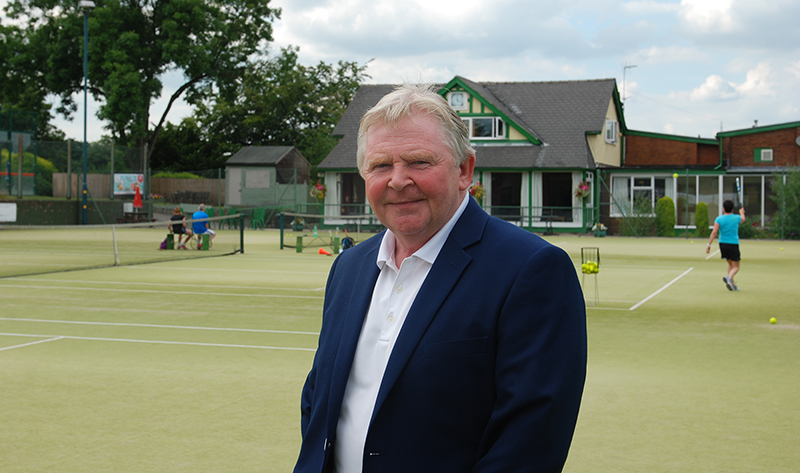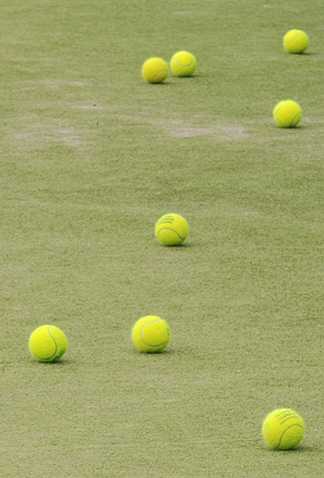New balls! Entrepreneurial spirit sets tone for tennis resurgence

Mon, 25 Jul 2016 15:49:00 BST
Lecturer Peter Emsell and director of Huddersfield Lawn Tennis and Squash Club puts the case for survival of the UK’s amateur sporting clubs
 TENNIS is one of the great global games and Wimbledon grabs the headlines every summer… but many local clubs face an uncertain future because they experience increasing difficulty persuading people to pick up a racket and play the sport.
TENNIS is one of the great global games and Wimbledon grabs the headlines every summer… but many local clubs face an uncertain future because they experience increasing difficulty persuading people to pick up a racket and play the sport.
Now, a University of Huddersfield lecturer has investigated the problems confronting sports clubs and how they must be creative and entrepreneurial in order to survive. He has used one of the Huddersfield’s longest-established institutions in order to prepare an innovative case study that has now been included in a major repository that reaches a worldwide audience.
Huddersfield Lawn Tennis and Squash Club was formed 135 years ago. It has diversified and innovated and is financially sound, but still suffers from the common problem of falling participation rates.
 Business lecturer Peter Emsell has been a playing member of the club for 30 years and a director for the past eight, giving him special insights into the challenges it faces. The result is a 2,000-word case study that is now available online via The Case Centre, which holds the world’s largest and most diverse collection of management cases, articles, book chapters and teaching materials.
Business lecturer Peter Emsell has been a playing member of the club for 30 years and a director for the past eight, giving him special insights into the challenges it faces. The result is a 2,000-word case study that is now available online via The Case Centre, which holds the world’s largest and most diverse collection of management cases, articles, book chapters and teaching materials.
Mr Emsell – who worked in operations management, logistics and human resources before switching to lecturing in people, management and organisations at the University of Huddersfield’s Business School – writes that the Huddersfield Lawn Tennis and Squash Club “has faced and overcome many challenges in its history, but none as great as those faced today. The surrounding political, cultural and socio-economic environment has seen huge shifts in emphasis”.
“These pressures have driven sports-based members clubs to be more innovative and take risks in order to find new ways for financial sustainability and survival,” he continues.
“Those that fail to make this shift, ultimately go out of existence. Yet have these types of clubs the resources, capabilities and vision to achieve the dual mission of financial sustainability and participation in sport?”
Huddersfield Lawn Tennis and Squash Club has a good set of directors with a range of business skills, said Mr Emsell. Initiatives have been tried to boost participation and links with the local community, in an attempt to overcome lingering elitist associations with tennis.
“I am optimistic but wary about the longer-term future,” he said. There had been no sign of an Olympics legacy nor a “trickledown effect” from Andy Murray’s success and popularity. But innovations such as a keep-fit routine known as “cardio-tennis” had proved popular.
Mr Emsell’s research is innovative because it applies well-established methods of research into social enterprises to an investigation of a sports club. “Surprisingly, very little academic inquiry and research has been carried out in this field at the theoretical level,” he writes.
His research continues and as part of an investigation into community-based racket sports clubs he is currently conducting an online survey – open to all – that will help provide data for his own doctoral project. Also, links with the management of the tennis club are providing opportunities for research and analysis by business studies students.







